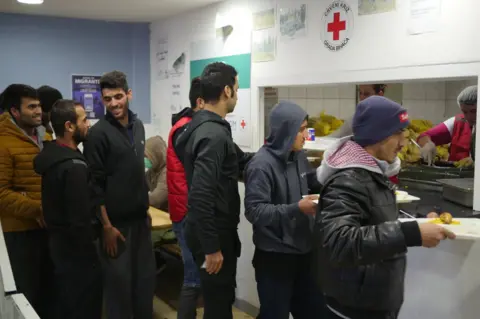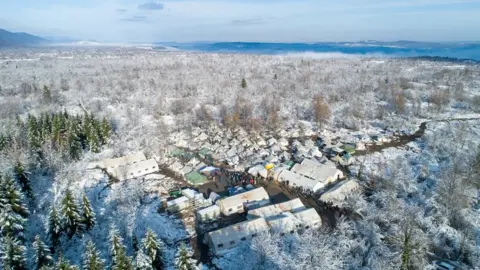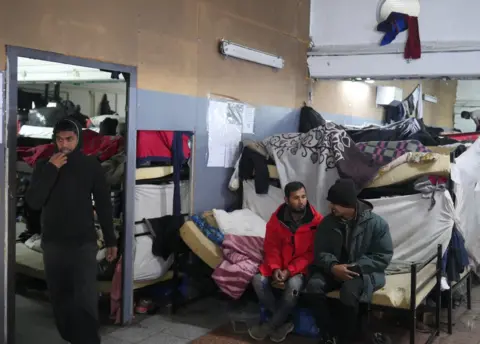Bosnia's 'inhumane' camp conditions put thousands of migrants at risk
 Reuters
ReutersWinter has arrived in Bosnia. But thousands of people who entered the country hoping to make their way across the border to Croatia - and thus, the European Union - are still here.
And for many of them, with overnight temperatures dropping well below zero, uncomfortable conditions are rapidly turning dangerous.
Bedraggled young men trudge disconsolately along the main road outside Bira, a reception centre run by the International Organisation for Migration (IOM) in the north-western city of Bihac. Some have bed rolls tucked under their arms.
They have been turned away, because the former refrigerator factory is full to its 2,000 capacity.
Inside, the cavernous space offers basic accommodation along with hot meals, medical care and washing facilities.

Camp manager Amira Hadzimehmedovic finds turning people away distressing.
"It makes you feel terrible, to say: 'Sorry I can't help you' while it's cold is a terrible thing to do," she says.
"The local government banned new arrivals at Bira. Some 2,000 people are squatting outside without proper protection."
Hundreds of those have been staying in tents at Vucjak, a camp on a former landfill site, close to Bosnia's border with Croatia.
The past week's snowfall on the mountains around Bihac has made life there even more hazardous.
 Reuters
ReutersAfter her visit to Vucjak, the Council of Europe's Commissioner for Human Rights, Dunja Mijatovic, said it was "inhumane and unacceptable" for people to be "amassed in the mud" without running water or adequate sanitation.
"The living conditions of hundreds of human beings in the improvised Vucjak camp are shameful. That camp should have never been opened in the first place," she said in a statement.
"It is now urgent to relocate these people and provide them with decent accommodation," she added.
The municipal authorities in Bihac provided the site at Vucjak - and acknowledge its inadequacy.
But the mayor's adviser, Edin Moranjkic, says it is unfair to expect a small city like Bihac to assume responsibility for migrants and refugees.
"In the beginning, local people had empathy and understanding for migrant issues. But there have been problems with behaviour - and the [non-functioning] state government. We feel that our government has abandoned us."
Dirk Panert came from Dortmund to set up a mobile relief operation which initially helped people at Vucjak.
But he now concentrates his efforts on those sleeping rough in the forested countryside along the border.
"These are people without shoes and socks, and often only [with] one layer of clothing," he says. "They can't survive like that."
Small wonder that many of those with places at reception centres are planning to stay put through the winter months.

Hassan came from Bangladesh and wants to go to Germany or France.
But he says a bed at the IOM's Miral centre, in a repurposed PVC door factory, near the border town of Velika Kladusa, is a lot better than the freezing alternative in Bosnia.
"All the people here are safe. Maybe after February, I will try to go to Croatia again, Inshallah."
